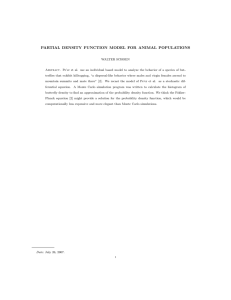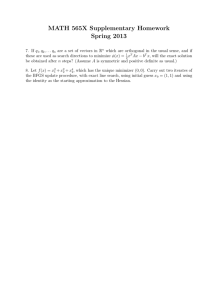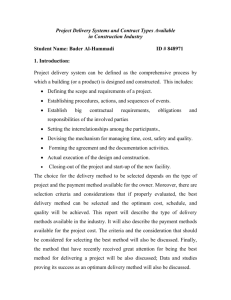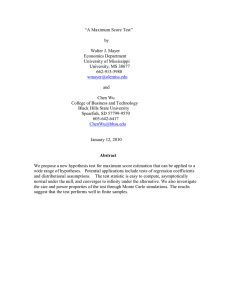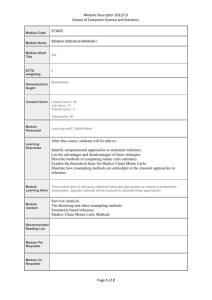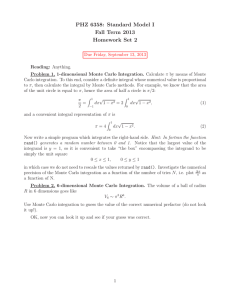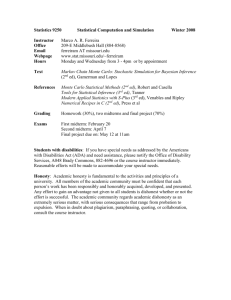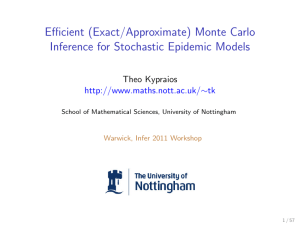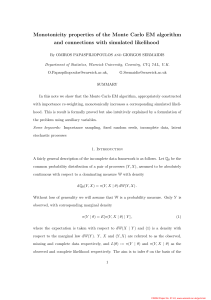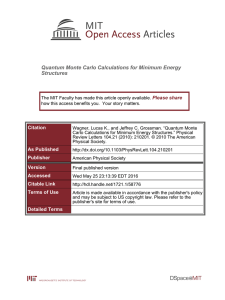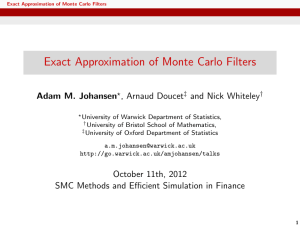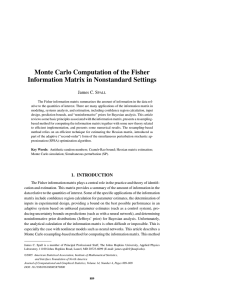Prelim Econ 706 Prof. Francis X. Diebold
advertisement
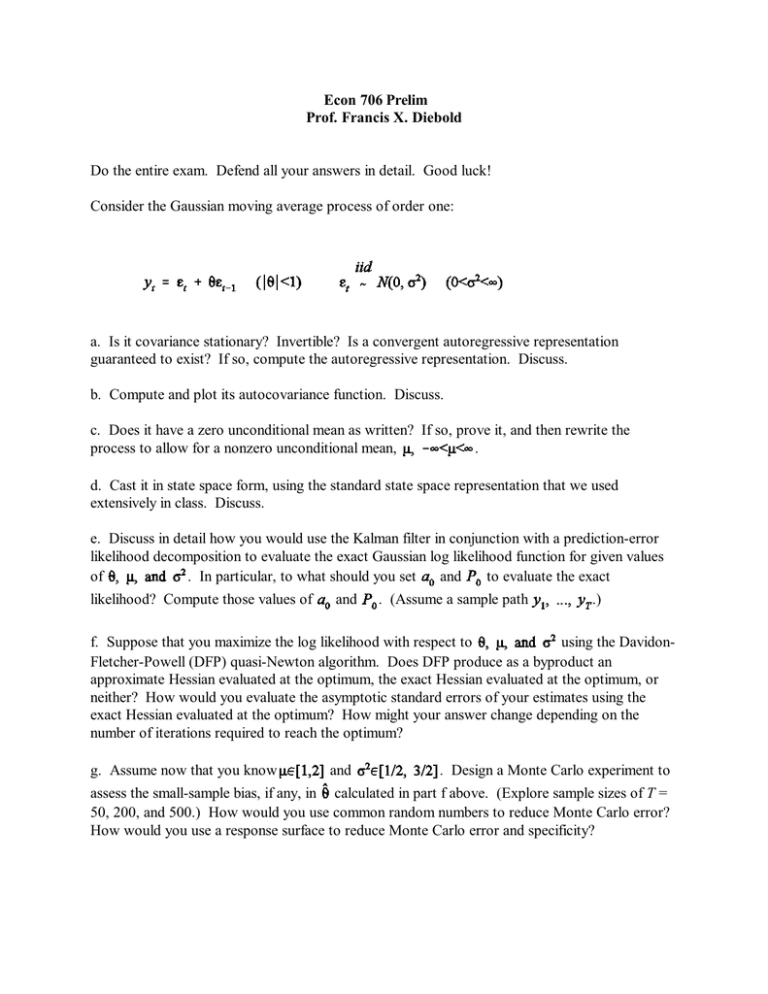
Econ 706 Prelim Prof. Francis X. Diebold Do the entire exam. Defend all your answers in detail. Good luck! Consider the Gaussian moving average process of order one: a. Is it covariance stationary? Invertible? Is a convergent autoregressive representation guaranteed to exist? If so, compute the autoregressive representation. Discuss. b. Compute and plot its autocovariance function. Discuss. c. Does it have a zero unconditional mean as written? If so, prove it, and then rewrite the process to allow for a nonzero unconditional mean, . d. Cast it in state space form, using the standard state space representation that we used extensively in class. Discuss. e. Discuss in detail how you would use the Kalman filter in conjunction with a prediction-error likelihood decomposition to evaluate the exact Gaussian log likelihood function for given values of . In particular, to what should you set and to evaluate the exact likelihood? Compute those values of and . (Assume a sample path .) f. Suppose that you maximize the log likelihood with respect to using the DavidonFletcher-Powell (DFP) quasi-Newton algorithm. Does DFP produce as a byproduct an approximate Hessian evaluated at the optimum, the exact Hessian evaluated at the optimum, or neither? How would you evaluate the asymptotic standard errors of your estimates using the exact Hessian evaluated at the optimum? How might your answer change depending on the number of iterations required to reach the optimum? g. Assume now that you know and . Design a Monte Carlo experiment to assess the small-sample bias, if any, in calculated in part f above. (Explore sample sizes of T = 50, 200, and 500.) How would you use common random numbers to reduce Monte Carlo error? How would you use a response surface to reduce Monte Carlo error and specificity?
